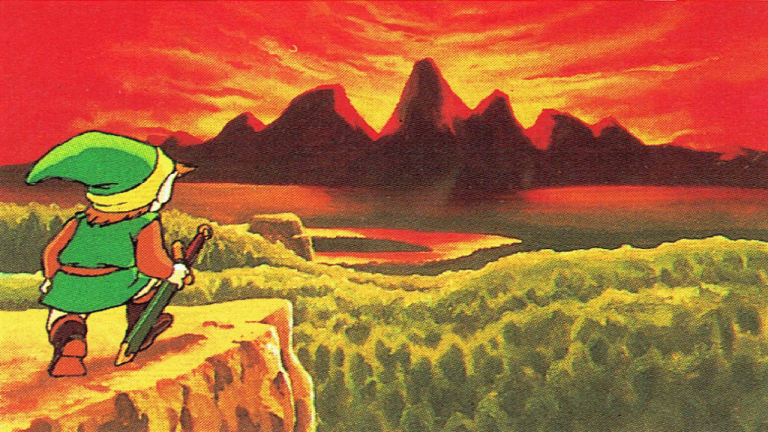Legend of Zelda Team Says They’re Not Concerned With “Old Games”
As the Tears of the Kingdom team focuses on Zelda's future, Producer Eiji Aonuma an Director Hidemaro Fujibayashi try not to dwell on the franchise's past.

The Legend of Zelda is as much a genre as it is a franchise. Older entries codified a gameplay loop of exploring dungeons, finding items that open up new areas, and repeating. That design stayed with the franchise, for good and for bad, until The Legend of Zelda: Breath of the Wild tossed quite a lot of it out in favor of expanded open-world concepts.
Given the overwhelmingly positive reviews of that title (and its historic sales figures), Nintendo had clearly struck gold. More importantly, Nintendo made lightning strike twice by iterating on that design with an equally successful sequel, The Legend of Zelda: Tears of the Kingdom. But while these recent entries are the most immersive games in the franchise, they raise the important question of which direction the series will follow from now on. The answer, unsurprisingly, seems to be “whatever direction Nintendo wants.”
Back in May, the Dutch outlet RTL Nieuws spoke with the current pilots in charge of the Legend of Zelda franchise: Producer Eiji Aonuma and Director Hidemaro Fujibayashi. During the discussion, the interviewer asked if the franchise would ever return to the “classic, old-fashioned” style of earlier Zelda titles. In response, Aonuma stated that Nintendo is always looking to the past for ways to improve its games, but at the same time, Nintendo doesn’t keep itself beholden to previous entries.
“It’s hard to say anything about the future,” says Aonuma in a translated version of the interview. “That said, thanks to earlier Zeldas, a game like Tears of the Kingdom now exists. This game was born from the ideas we had in the past. We always try to make something that offers more than previous productions. In that respect, we are not really concerned with our old games anymore. We prefer to focus on the future.”
On the surface, aspects of Tears of the Kingdom seem to contradict that design philosophy. As most people who played the game (and haven’t spent all their time making laser-powered instruments) know, it features variations on numerous classic Zelda tropes (most notably, dungeons) that Breath of the Wild lacked. Many gamers, the RTL Nieuws interviewer included, assumed those were implemented as a throwback to previous Zelda titles such as The Legend of Zelda: Ocarina of Time. According to Fujibayashi, though, those decisions were a side effect of the design process:
“Because Tears of the Kingdom is a sequel to Breath of the Wild, we didn’t really think about games like Ocarina of Time,” says Fujibayashi. “The focus was more on how we could make Breath of the Wild more comprehensive and interesting.”
Aonuma expanded on Fujibayashi’s statement, claiming that the similarities were coincidental at best.
“In Breath of the Wild, we had the Divine Beasts, which replaced in Tears of the Kingdom with the dungeons we call temples,” Aonuma explains. “They are similar to what we also had in Ocarina of Time. However, that was not conscious, but purely done this way because it fits better with the flow of the story. I didn’t suggest during development that we should look at these old games.”
It’s worth noting that Fujibayashi and Aonuma already previously suggested that future major Zelda games will probably feel closer to the format established by Breath of the Wild and Tears of the Kingdom. The pair also clearly stated that they don’t necessarily look back to the old Zelda games for inspiration. Sure, the Zelda series is full of callbacks and references, but each entry’s main skeleton is essentially developed in a bubble. In that same interview, the team even mentioned that they weren’t looking at modern games like Elden Ring when working on Tears.
So while classic Zelda games could live on in other ways, it really does sound like Breath and Tears have reset how the mainline Zelda producers view the major entries in this franchise.
